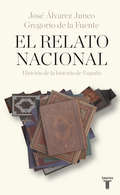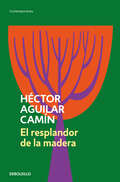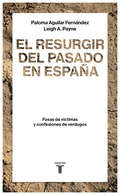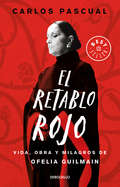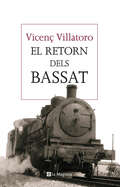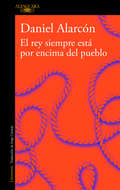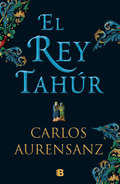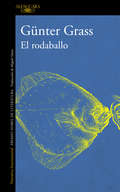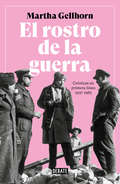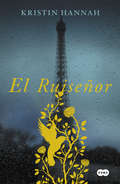- Table View
- List View
El reino del caos
by Nick DrakeHace más de tres mil años, una reina egipcia escribía al rey de los hititas, su mayor enemigo: «Tengo miedo». Y luego le hacía un ofrecimiento que podía cambiar el curso de la historia.Tebas, 1320 a.C. La salud del anciano rey empeora. Su joven esposa Anjesenamón debe actuar rápido si quiere conservar un trono que es legítimamente suyo. Mientras en la corte se rumorea sobre los posibles sucesores, y cobra cada vez más fuerza el nombre del ambicioso general Horemheb, la reina escribe una comprometida carta y la confía a uno de los últimos hombres fieles a su dinastía... la dinastía de Ajnatón, Nefertiti y Tutankhamón. En manos de Rai Rahotep, el mejor «buscador de misterios» de la policía tebana, está ahora el destino de Egipto.Una historia de intriga y aventura que nos transporta de las calles polvorientas de la capital del Antiguo Egipto a las cortes de las dos potencias que dominaban entonces el mundo y rivalizaban por su supremacía, y arroja luz sobre uno de los enigmas no resueltos de la Antigüedad.«Una recreación brillante.»Paul Sussman«Una novela que entusiasmará a los lectores de intriga histórica, a quienes les fascine el Antiguo Egipto o a quienes, simplemente, busquen un buen suspense.»Booklist
El reino imposible
by Yeyo BalbásUna apasionante novela sobre el fin del reino visigodo y los inicios de la conquista musulmana de la península ibérica. Yeyo Balbás nos regala una recreación magistral llena de épica y personajes extraordinarios. Ante un imperio con ansias de conquista y un reino envenenado de enemistades y traiciones, ha llegado el momento de empuñar las armas. 711 Anno Domini. Tras la muerte de Witiza, rey de los godos, y la minoría de edad de su heredero, Rodrigo, duque de la Bética, será el elegido para el trono. Deberá enfrentarse a la ruptura de la alianza entre los dos grandes linajes visigodos y a la peste y el hambre que asolan el país. Junto a él, se encontrará Fruela, hijo menor del conde Pedro de Cantabria, que se verá envuelto en las disputas dinásticas entre las diferentes facciones nobiliarias. Ante la inminente llegada del imperio islámico a las columnas de Hércules para imponer el yihad, Fruela deberá acompañar a Rodrigo al extremo sur del reino, donde se decidirá el destino de Spania.
El reino imposible
by Yeyo BalbásUna apasionante novela sobre el fin del reino visigodo y los inicios de la conquista musulmana de la península ibérica. Yeyo Balbás nos regala una recreación magistral llena de épica y personajes extraordinarios. Ante un imperio con ansias de conquista y un reino envenenado de enemistades y traiciones, ha llegado el momento de empuñar las armas. 711 Anno Domini. Tras la muerte de Witiza, rey de los godos, y la minoría de edad de su heredero, Rodrigo, duque de la Bética, será el elegido para el trono. Deberá enfrentarse a la ruptura de la alianza entre los dos grandes linajes visigodos y a la peste y el hambre que asolan el país. Junto a él, se encontrará Fruela, hijo menor del conde Pedro de Cantabria, que se verá envuelto en las disputas dinásticas entre las diferentes facciones nobiliarias. Ante la inminente llegada del imperio islámico a las columnas de Hércules para imponer el yihad, Fruela deberá acompañar a Rodrigo al extremo sur del reino, donde se decidirá el destino de Spania.
El relato nacional: Historia de la historia de España
by Gregorio De la Fuente José Álvarez JuncoJosé Álvarez Junco y Gregorio de la Fuente analizan en este ensayo el proceso de construcción de la idea de España por parte de políticos nacionalistas, historiadores y otras élites culturales. «Es habitual en toda sociedad humana que las narraciones sobre su pasado, más que indignaciones guiadas por un mero interés por el conocimiento, sean ante todo pilares básicos sobre los que se edifica la identidad colectiva. Versan sobre los padres de la patria, sus héroes y mártires, los valores perennes sobre los que se fundamenta la identidad colectiva, todo lo cual escapa a cualquier crítica historiográfica o simplemente racional. Quien intente poner en duda estos relatos heredados a la luz de nuevas evidencias o nuevas técnicas interpretativas corre serios riesgos de ser acusado, pura y simplemente, de antipatriota.» El relato nacional traza la evolución del modo en que, a lo largo del tiempo, se ha idoentendiendo y construyendo la historia de este territorio y grupo humano conocidos hoy como «españoles». Y muestra cómo -desde sus orígenes en el terreno legendario, con referencias hoy inverosímiles a heroicos antecesores, hasta tiempos más recientes- ese relato se ha ido adaptando de acuerdo a las necesidades del momento. Basado en un texto publicado originalmente en Las historias de España. Visiones del pasado y construcción de identidad (Crítica-Marcial Pons, 2013), este libro ha sido reescrito, anotado y completado con dos capítulos inéditos y enormemente significativos sobre las crónicas de Indias. Reseñas a los autores y a sus obras:«Una de las novedades más sólidas e interesantes de los últimos tiempos, un compendio profundo, incisivo y convincente para comprender la "historia de la historia de España".»Rafael Núñez Florencio, El Cultural (sobre Las historias de España) «Álvarez Junco es un historiador queha abordado, y siempre con maestría, algunos fenómenos esenciales de la historia española: el anarquismo, el populismo, el nacionalismo y la relación entre visión del pasado y construcción de identidad.»José Andrés Rojo, Babelia «Este libro es un buen instrumento para conocer en profundidad los antecedentes históricos de muchos de los problemas actuales.»Rogelio López Blanco, El Cultural de El Mundo (sobre Mater dolorosa) «Un espléndido libro sobre el nacimiento del nacionalismo español en el siglo XIX.»Luis Berenguer, El País (sobre Mater dolorosa)
El rescate de una sirena (London Mythos #1)
by Rebekah Lewis¿Es este un amor a primera vista, o solo una jugarreta del destino? El capitán James Harlow, tercer hijo de un vizconde, no espera nada de la vida y siempre busca la aventura. Cuando es vencido por un grupo de jóvenes sinvergüenzas vinculados a la nobleza, pierde la mano... y casi su vida, de no ser por una misteriosa sirena que emerge de las profundidades para salvarlo. Ione no es como las otras nereidas. Sus escamas y su cabello no son tan vibrantes, y no desea ahogar a los mortales con los que se une. Cuando ve que un mortal apuesto es dejado para que muera en el mar, no puede evitar salvarlo y cambiar sus aletas por piernas para seguirlo en tierra. Tendrá solo tres días para decidir si deben estar juntos, y durante ese tiempo la pareja queda atrapada en medio de los planes de un sociópata que intenta destrozar la vida de James. ¿Podrán detener al joven conde antes de dañar a alguien más?
El rescate del Mesías
by Marcelo BirmajerUna mirada políticamente incorrecta, llena de humor, patetismo y vértigo cinematográfico, sobre la Argentina despedazada de los años setenta. <P><P> Ciudad de Buenos Aires, Once, 1973. José Mifkad, un comediante judío de treinta años que se dedica a contar chistes en fiestas de la colectividad, ve desde uno de los asientos del colectivo 106 el momento en el que un hombre vestido de ejecutivo es asesinado a sangre fría en plena calle. Poco después, Mifkad recibe una advertencia de Montoneros. Acaba de presenciar un ajusticiamiento, es el único testigo y debe guardar silencio. Un extraño segundo llamado lo sorprende aún más. Se trata de un poderoso empresario judío, Abraham Golt, que quiere contratarlo con un año de antelación para el bar mitzvá de su nieto. Lo que Golt no sospecha es el plan que ha urdido su yerno montonero. En esta suerte de comedia de enredos en clave revolucionaria, Marcelo Birmajer es capaz de tensionar al máximo el verosímil de su historia, y de la historia reciente del país, para ventilar sentidos, sinsentidos y delirantes contrasentidos ocultos en ella. Un período que suele ser tratado con solemnidad y corrección política visto con la lente del absurdo más punzante y cuestionador.
El resplandor de la madera
by Héctor Aguilar CamínUna novela doble: un relato de familia y una crónica de la memoria de un lugar con terremotos del alma y huracanes, a merced de los azares del Caribe. El resplandor de la madera es una novela que cuenta dos historias. Por un lado, la guerra del hombre llamado Casares contra su padre elegido, a la vez refugio y rival. Por el otro, la saga familiar de los Casares, cuya huella se pierde en el tiempo. Aguilar Camín une aquí dos mundos narrativos: el del pequeño pueblo originario y el de la gran ciudad sin rostro. La novela va y viene del pasado mítico al presente urbano. Entre ambos corre la historia de los Casares sellada por la herida del padre y sus pasiones: la ambición y el dinero, el amor y la rivalidad, la fuerza moral de la memoria y su poder de reconciliación.
El resurgir del pasado en España
by Leigh A. Payne Paloma Aguilar FernándezUn libro a favor de una buena memoria histórica, sensible y plural. Durante mucho tiempo la Transición española se consideró modélica. Sin embargo, en los últimos años, se ha visto ampliamente cuestionada, al tiempo que cobraba fuerza la demanda de justicia y verdad sobre las atrocidades cometidas por los franquistas en la guerra y la posguerra. El relato asentado durante la transición invitaba a dejar el pasado de lado como único modo posible de transitar pacíficamente hacia la democracia y se sustentaba en la idea de que todos habían sido igualmente culpables de la barbarie desatada en la contienda. Este pilar fundamental de la transición comienza a agrietarse a medida que las exhumaciones de fusilados republicanos perturban el olvido en el que habían caído las víctimas del franquismo y las confesiones de los verdugos refieren verdades incómodas sobre el pasado. Este excelente ensayo, claro y sintético, analiza cómo ha tenido lugar esta transformación. Críticas:«Un tema de interés candente y dos autoras de credenciales impecables. Un libro escrito con esmero y basado en un impresionante conocimiento de la enorme bibliografía existente sobre el tema.»Paul Preston «Un análisis sorprendentemente original, de la mano de dos destacadas especialistas, del problema de las atrocidades, la memoria y la responsabilidad en el caso español, único tanto por la amplitud de su perspectiva comparada como por la profundidad de su mirada sobre los asuntos nacionales.»Stanley G. Payne
El retablo rojo: Vida, obra y milagros de Ofelia Guilmain
by Carlos PascualCarlos Pascual desnuda el alma de Ofelia Guilmain para presentárnosla tal y como fue en realidad: Una mujer de carne y teatro. Una joven se abre paso entre los escombros que inundan aquella plaza de Valencia, devastada por los bombardeos. Con calma, sube a un tablado. Cierra los ojos, extiende las manos y comienza a hilvanar algunos poemas de guerra con una voz tan diáfana y sonora que impone silencio a la multitud de desamparados que la escuchan. El nombre de esa muchacha de catorce años es Ofelia Guilmain. Carlos Pascual, novelista y dramaturgo, hombre de letras y escenarios, hace suya la voz de la primera actriz Ofelia Guilmain para narrar la extraordinaria y trágica epopeya que fue su vida; la pérdida de un país que se desmoronaba en una cruenta Guerra Civil y la solidaria mano que México ofreció a los miles de refugiados republicanos que, en 1939, llegaron a nuestras tierras a enriquecer nuestra cultura, nuestra ciencia y tecnología. Por entre las páginas de El retablo rojo corren, además de la gracia y el encanto de la Guilmain, las figuras cimeras de Luis Buñuel, Siqueiros, León Felipe, Agustín Lara, Salvador Novo... todos bajo el gobierno de una narrativa implacable, de gran belleza, sin pausas, sobrecogedora y por momentos, hilarante.
El retiro del templario
by Ángel Infestas GilUna crónica excepcional sobre el el final de los templarios de Castilla a través del viaje interior de Lucas Gil de Zamora, un caballero que busca, en un mundo ya sin cruzadas, un nuevo sentido a la vida. <P><P>"Al final de la gestacruzada, después de la caída de San Juan de Acre, el caballero Lucas Gil de Zamora, que se encuentra malheridoe impedido para el resto de su vida, es destinado por los maestres de Temple a la encomienda de Villalpando, en el reino de León. Asentado en esa villa de Tierra de Campos, frontera entre los viejos reinos de la corona de Castilla, el nuevo comendador inicia un viaje interior en busca de la razón de ser de su orden y de la propia identidad ahora que las cruzadas ya no existen, a la vez que seimplica sin límites en la vida de sus gentes, hasta el punto de poder comprobar cómo las creencias, el afán de poder y la necesidad de sobrevivir tejen una trama compleja que les engulle a todos. Cristianos, judíos y moros; ricos hombres, caballeros, clérigos y frailes; artesanos, labriegos y pastores, gentes de toda condición actúan en esta novela como si de un escenario se tratara, tras cuyas bambalinas se esconden figuras misteriosas que, desde lo oculto, condicionan el devenir de los acontecimientos."
El retorn dels Bassat
by Vicenç VillatoroCosint narració, testimoni i reflexió literària, El retorn dels Bassat és un fil que ressegueix l’esplendor i la tragèdia dels jueus del Vell Continent. I, al capdavall, la història de la mateixa Europa. Un viatge a un món ja desaparegut, trenat per tots els confins de la Mediterrània de la mà de Vicenç Villatoro. En la vida de Lluís Bassat, un dels publicistes més prestigiosos del món, conflueixen dues famílies errants i molts viatges a través dels segles. Els Bassat, sefardites que, després d'haver de marxar d'Espanya al segle XIV, recorren durant el XIX i el XX Bulgària,Turquia, Àustria, Alemanya i França, abans de tornar a Espanya. Els Coen, jueus romaniotes establerts a l'illa grega de Corfú, també han d'emigrar durant els segles XIX i XX a Itàlia i França, abans que un dels seus membres arribi a Barcelona l'any 1905. Vicenç Villatoro, de la mà de Lluís Bassat, indaga en aquest periple extraordinari del retorn a Sefarad, i ens transporta a un món ja desaparegut, trenat per tots els confins de la Mediterrània.
El retorno de un sentimiento (Los Kinsberly #Volumen 5)
by Evelin MordánQuinta y última entrega de la saga «Los Kinsberly». Una historia sacudida por el tiempo.Un sentimiento que se niega a dejar de existir. Amar nunca había sido tan importante para alguien como para William Kinsberly, el último de una familia llena de historias de amor en la que comenzaba a sentirse fuera de lugar. Pero cuando conoce a la mujer que despierta en él los mejores sentimientos, un siniestro suceso amenaza con arrebatar de su vida la oportunidad de ser feliz. Enamorada y destrozada, lady Bella Wislow es obligada a marcharse lejos para cumplir con el deber para con su familia, en la que no es aceptado un hombre sin título ni posesiones. Cuando varios años después se ha resignado a su destino, volver a ver al hombre que ama hará surgir secretos que jamás pensó revelar. novela historica romantica;romantica victoriana;romance historico;romance regencia;romance victoriano;libro;literatura;ficcion;mejores;novela de amor;para adultos;en español;en castellano;romantica ebook;selecta editorial;el rincon de la novela romantica;literatura romantica;romance;historia de amor;2019;saga los kinsberly;quinta entrega;historia de amor;
El rey de las sombras
by Eve De CastroFrancia, siglo XVII. Los destinos de Nine, una joven curandera, y Batiste, fontanero, van a cruzarse con los de la realeza durante la construcción de los jardines y fuentes de Versalles. El rey de las sombras revela la cara oculta de Versalles a través de una apasionante historia de amor y traición.Una atractiva novela sobre secretos, ambiciones, envidias y conspiraciones; una magnífica recreación histórica en la que nobles y plebeyos protagonizan una red de intrigas.
El rey del salitre que derrotó a Balmaceda
by Guillermo ParvexCrónica histórica que revela la influencia del inglés John Thomas North en la revolución de 1891 que acabó con el gobierno del José Manuel Balmaceda. El tema es la Guerra Civil de 1891. El eje conductor será la demostración, respaldada por archivos históricos, que José Manuel Balmaceda estuvo a punto de cambiar el destino de la revolución conservadora a los tres meses de iniciada la rebelión del Congreso apoyado por la Marina. Se demostrará la desazón de los revolucionarios por la falta de medios luego de los combates registrados en Tarapacá contra las fuerzas constitucionales. Pero esto, que podría haber cambiado el curso de la historia política de Chile, se vio frustrado por la tremenda injerencia del Rey de Salitre, John Thomas North y por otros británicos, que en ese momento en que todo se estaba inclinando a favor de Balmaceda, entregaron las armas y equipos necesarios a los revolucionarios, además de sabotear el equipamiento, especialmente naval, de los balmacedistas. Se tocará el gran apoyo popular de que gozaba Balmaceda al iniciarse el conflicto interno, por todos los beneficios recibidos, pero como este fue anulado casi en forma patriarcal por los instigadores de la revolución.
El rey siempre está por encima del pueblo (edición ampliada)
by Daniel Alarcón<P>Las historias de unos personajes que intentan luchar contra el poder en cualquiera de sus formas y que confirman a Daniel Alarcón como uno de los más destacados narradores contemporáneos. <P>El rey siempre está por encima del pueblo recoge las historias de una serie de personajes cuyas vidas carecen de heroísmo. <P>Y sin embargo, en todas ellas vibran, soterradas, la violencia y la voluntad de rebelión ante una figura paterna o paternalista, hacia el poder en cualquiera de sus formas. <P>Un niño es obligado por su padre a ejercer de lazarillo de un mendigo ciego y codicioso, hombres y mujeres construyen en una noche histórica su lugar en el mundo, un vibrador decide el destino amoroso de una pareja, un homosexual recuerda sus amores con el presidente Lincoln...
El rey tahúr
by Carlos AurensanzLa nueva novela del autor de la trilogía «Banu Qasi» es una apasionante historia sobre una venganza tallada en piedra. Reino de Navarra. Año del Señor de 1188. Tudela, la villa que alberga la Corte, vive un momento de efervescencia décadas después de que Alfonso el Batallador arrebatara su dominio a los musulmanes. El fuero nuevo ha atraído a cientos de pobladores foráneos a un lugar donde todo está por hacer: la alcazaba se está transformando en castillo y sede real, el barrio de la morería crece extramuros, las iglesias se levantan por doquier, de la mano del Císter surgen monasterios y conventos y las poderosas órdenes de caballería financian su presencia en Tierra Santa con las encomiendas de las fértiles tierras del Ebro. Las obras de la nueva colegiata avanzan y se hace preciso ocupar el solar de la antigua mezquita. Nicolás, un joven aprendiz de cantero de origen borgoñón, trabaja en su demolición cuando el pavimentoparece ceder bajo sus pies. Regresa durante la noche para descubrir una cripta oculta bajo el antiguo mihrab y, en ella, al parecer olvidada, una arqueta musulmana con un ajado pergamino en su interior. Será el descubrimiento que marque no solo su propio destino, sino el de todo aquel que tenga conocimiento de su existencia, el del propio reino de Navarra y, a la postre, el de toda la Cristiandad.
El rey y el filósofo
by Daniel Guebel¿De qué charlan el Luis XIV de Francia y el señor Gottfried Leibniz cuando se encuentran? Nombrado embajador del Imperio Romano Germánico, el filósofo Gottfried Leibniz llega a Francia con una misión: convencer a Luis XIV de invadir Egipto. Sin embargo, aturdido por el teatro de extravagancias de la corte, su determinación va debilitándose poco a poco. El Rey lo evade por los pasadizos secretos y los salones de Versalles, lo embota con manjares, lo escandaliza con insinuaciones libertinas y lo involucra en intrigas palaciegas que amenazan con guerras, crímenes reales y matrimonios fantásticos. Cuando finalmente Leibniz y Luis XIV se encuentren, compartirán la conversación íntima, la perplejidad existencial, la exploración científica y los universos metafísicos, mientras mueven sus piezas en el juego diplomático que determinará el destino de Oriente y Occidente. Con potencia literaria y descarada ironía, Daniel Guebel hace estallar la exuberante arquitectura barroca -caprichosa y genial- de la mente del hombre de poder. La crítica dijo: «Guebel es genial, nunca ingenioso. Es el mejor novelista de su -mi- generación. El más monolítico, monolingüe y leve de nuestros grandes autores».Luis Chitarroni «La prosa subversiva de Guebel viene de Gógol y de Nabokov, incluso parecería un improbable Pynchon argentino. Pero Guebel es grande por sus propias cualidades: su dominio de una frase enroscada, pero con apariencia leve, gozosa y humorística; la riqueza de su imaginación; la erudición musical y filosófica; la pertinencia del pensamiento y su desplazamiento sutil hacia el terreno de la parodia mediante un juego de anacronismos». Carlos Pardo, Babelia «Daniel Guebel es -quizá con Aira- el escritor con mayor amplitud de registro de la literatura argentina, alguien capaz de pasar sin solución de continuidad de la invención más desenfrenada a la crudeza total del documentalismo autobiográfico. Guebel es nuestro Philip Roth: un escritor que cuando escribe no le tiene miedo a nada».Alan Pauls «Borges, un Guebel populista. Guebel, un Borges culto». Juan José Becerra
El riesgo de proteger a una dama (Los irresistibles Trevelyan #Volumen 2)
by Nuria RiveraNo te pierdas la segunda entrega de la atrapante serie Los irresistibles Trevelyan. ¿Puede una carta cambiar una vida? Cuando Jared Trevelyan recibe noticias de su antiguo coronel, un hombre que no despierta ninguna de sus simpatías, siente la tentación de negarle su ayuda. Pero Jared es, entre otras cosas, un hombre de honor, un hombre al servicio de la Corona, un hombre que frustró un motín para liberar a Napoleón durante su viaje a Santa Elena. La petición de su antiguo superior no puede resultarle más sorprendente. Su hija, que vive con su abuela en un pequeño pueblo de Chester, corre peligro. Alguien amenaza con matarla si él no entrega una serie de secretos militares. Su delicado estado de salud le impide ir a buscarla en persona, y no hay nadie en quien confíe más que en Jared Trevelyan. Evelyn Crawford vive una existencia apacible y fantasea con labrarse un futuro como institutriz, lejos de ese padre siempre ausente que tan poco significa para ella. La llegada de Jared pondrá su mundo patas arriba y, sin conocer el motivo, se verá obligada a viajar con él a Londres. Un viaje lleno de peligros y sorpresas que esconde también el futuro de ambos.
El riesgo de sonreír al príncipe Andréi (Los irresistibles Beau #Volumen 3)
by Ruth M. Lerga¿Debe Rachel perdonar un abandono que casi significa su ruina social? Una decisión difícil cuando el sentimiento de traición es casi tan fuerte como el amor verdadero. El sueño de lady Rachel Thynne siempre ha consistido en ser una debutante ejemplar y casarse con el mejor partido de la temporada. Y, al parecer, tiene la oportunidad de lograrlo en su primer año: un príncipe ruso va a instalarse en Londres y, lo sepa él o no, será su esposo. Aunque para eso tenga que sacrificar alguna de las estrictas normas del decoro... El príncipe Andréi acude a Londres en misiones diplomáticas, un objetivo que olvida en el momento en que le presentan a lady Rachel, la mujer más cautivadora que jamás haya conocido y a la que decide conquistar por encima de todo. Solo hay una cosa que no puede ignorar: el mandato de su zar de regresar a San Petersburgo, por lo que se ve obligado a dejar Inglaterra de la noche a la mañana, sin promesas ni despedidas. La desaparición del príncipe desata todo tipo de cotilleos sobre una pareja que, se daba por sentado, sería el mejor matrimonio de la década, dejando a Rachel con el corazón roto. Para cuando Andréi regresa, su dama parece haberlo olvidado. Tal vez su corazón haya sanado, pero su orgullo exige que se cobre la revancha.
El rodaballo
by Günter GrassUn libro que es también -o quizá no- una sátira del feminismo, una sabrosa historia de la cocina, un constante homenaje a Dánzig, una parábola de la condición humana... En la desembocadura del Vístula, un pescador neolítico captura un rodaballo malencarado y estrábico. A cambio de la libertad, el extraño pez plano le promete ser su consejero y mentor, a través de los siglos, en su eterna lucha contra la Mujer.
El rostro de la guerra: Crónicas en primera línea 1937-1985
by Martha GellhornLas crónicas de la mítica corresponsal Martha Gellhorn, desde la guerra civil española hasta los conflictos de Centroamérica de los años noventa. Martha Gellhorn, periodista y escritora estadounidense, vivió como corresponsal de guerra los conflictos bélicos más importantes de la segunda mitad del siglo XX. Este libro recoge los sentimientos, las impresiones y el testimonio directo de Gellhorn en la Guerra Civil española, las guerras de Finlandia, de China, la Segunda Guerra Mundial, la guerra de Java, las guerras y conflictos en Oriente Próximo, Centroamérica y Vietnam. «Escribí muy deprisa [...] -diría Gellhorn-, siempre temía olvidar el sonido, el olor, las palabras, los gestos exactos que eran propios de ese momento y ese lugar». Los reportajes aquí reunidos se muestran como un reflejo de esos intensos momentos. Recuentos sinceros que revelan laprofunda empatíade una mujer que supo comprenderla vulnerabilidad del ser humano y transmitirla en sus crónicas. Acompañados al final de una serie de textos escritos por la autora con la perspectiva que da el paso del tiempo y de una visión general propia que refleja su actitud contra las armas nucleares y su amenaza de la guerra, las crónicas de Martha Gellhorn son un clásico en su género y han creado escuela en todo el mundo. Críticas:«Un brillante libro anti-guerra.»The New York Times «El estilo de Gellhorn es simplemente fascinante.»The Guardian «Una colección excepcional de crónicas punzantes pero compasivas de la tragedia y el sufrimiento de la guerra.»Library Thing
El ruiseñor
by Kristin HannahDos hermanas buscan su propio camino hacia la supervivencia, el amor y la libertad en la Francia ocupada durante la Segunda Guerra Mundial. 50 semanas en el TOP10 del New York TimesMás de 1.500.000 de ejemplares vendidos de ejemplares vendidosUno de los 10 libros más vendidos en USA en 2015Premio Goodreads Mejor Novela de Ficción Histórica Francia, 1939. En el tranquilo pueblo de Carriveau, Vianne Mauriac se despide de su marido, Antoine, que debe marchar al frente. Ella no cree que los nazis vayan a invadir Francia, pero lo hacen, con batallones de soldados marchando por las calles, con caravanas de camiones y tanques, con aviones que llenan los cielos y lanzan bombas sobre los inocentes. Cuando un capitán alemán requisa la casa de Vianne, ella y su hija deben convivir con el enemigo o arriesgarse a perderlo todo. Sin comida ni dinero ni esperanza,Vianne se ve obligada a tomar decisiones cada vez más difíciles para sobrevivir. La hermana de Vianne, Isabelle, es una joven rebelde de dieciocho años que busca un propósito para su vida con toda la temeraria pasión de la juventud. Mientras miles de parisinos escapan de la ciudad ante la inminente llegada de los alemanes, Isabelle se encuentra con Gaëton, un partisano que cree que los franceses pueden luchar contra los nazis desde dentro de Francia. Isabelle se enamora completamente pero, tras sentirse traicionada, decide unirse a la Resistencia. Sin detenerse nunca para mirar atrás, Isabelle arriesgará su vida una y otra vez para salvar a otros. En el amor descubrimos quiénes queremos ser.En la guerra descubrimos quiénes somos en realidad. «Me entusiasmó El ruiseñor de Kristin Hannah, una escritora con gran talento para crear historias con magníficos personajes, excelentes argumentos y fuertes emociones. ¿Se puede pedir más en una novela?»Isabel Allende Reseñas:«Un libro que no se puede dejar... Este homenaje emocionante y emocional a las valientes mujeres que lucharon tras las líneas enemigas en la Segunda Guerra Mundial está destinado a conseguir para la ya inmensamente popular Hannah una audiencia todavía mayor. El Ruiseñor lo tiene todo para arrasar en el mundo editorial.»Booklist «Una novela llena de emoción y corazón.»Library Journal «El Ruiseñor es una exploración hermosamente escrita y enormemente evocadora de la vida, el amor y los estragos de la guerra, y de las diversas maneras en que las personas reaccionan ante situaciones inimaginables. Esta poderosa historia está repleta a partes iguales de acción y emoción, y está garantizado que será un gran éxito. ¡Me encantó!»Sara Gruen, autora del best seller Agua para elefantes «Hannah trata con maestría el drama de la guerra a través de dos mujeres cuya fuerza de carácter brilla más allá de sus diferencias.»Publishers Weekly
El sabor del chocolate: Lujo, moda y buen gusto en el siglo XVIII
by Piero CamporesiEL RELATO DELICIOSO Y ELEGANTE DE CÓMO EL CHOCOLATE DESATÓ EL FRENESÍ UNIVERSAL Y OTROS CAMBIOS EN EL COMER Y EL BEBER EN EL SIGLO XVIII Este delicioso libro nos traslada al paisaje sensual del Siglo de las Luces. Como un viajero gastronómico, Piero Camporesi, uno de los ensayistas italianos más originales y prestigiosos, nos describe con gran riqueza y maravillosos detalles una sociedad en plena ebullición en el siglo XVIII. Bajo la luz cálida de los candelabros, asistimos al tintineo de las copas y al baile de platos en los comedores donde las élites europeas, obsesionadas con la búsqueda de lo exótico y aparentemente frívolas, ansiaban dejar atrás el legado de los siglos salvajes que precedieron a favor de un modo de vida más etéreo y refinado. Camporesi examina el paso a una dieta mucho más ligera y funcional, que enfatizaba alimentos exóticos como el té, el café y el chocolate, libre de las carnes pesadas, los sabores fuertes y los condimentos excesivamente vigorosos (queso, cebolla, ajo) que caracterizaban la antigua cocina, y da cuenta con brillantez de cómo este cambio refleja las profundas transformaciones en la moda y los hábitos que tuvieron lugar en Europa durante la Ilustración. Este gusto renovado se adaptaba a los paladares sensibles, era agradable a la vista y estaba en perfecta sintonía con la nueva preferencia por la delgadez y la ropa ajustada. Casaba también con el escaso apetito de las damas delicadas, noctámbulas y golosas (pero no glotonas) que conversaban hasta la extenuación en los salones literarios mientras saboreaban un buen tazón de chocolate. La crítica ha dicho...«Es, esencialmente, una reconstrucción del gusto y la cocina del siglo XVII que marcó el éxito de cocineros, platos, técnicas y de la práctica culinaria francesa en Europa.»Corriere della Sera «Este extraordinario intelectual resurge hoy con toda su carga subversiva y anticipatoria, especialmente a la luz de las transformaciones de los últimos veinte años. Con su manera inimitable de combinar registros disonantes y hacerlos resonar de un modo visionario, indisciplinado y sin precedentes, hace de la comida el eje alrededor del cual fluye la historia».MARINO NIOLA, La Reppublica
El salón dorado: De Constantinopla a la España del Cid. Una novela del siglo XI
by José Luis CorralEl fascinante viaje a la Edad Media que renovó la novela histórica en España. A fines del siglo XI la tensión entre cristianos y musulmanes está a punto de desencadenar uno de los episodios definitorios de la Edad Media: las Cruzadas. Un joven esclavo será testigo privilegiado de las transformaciones del mundo mediterráneo desde Constantinopla a al-Andalus. En la vorágine de acontecimientos que marcaron el destino de Europa, un hombre tratará de encontrar vías de entendimiento entre cristianos, judíos y musulmanes, en el centro de un drama histórico que marcó el futuro de España. José Luis Corral nos ofrece en El salón dorado una magnífica recreación de una época apasionante de nuestra historia y una aventura sin igual.


